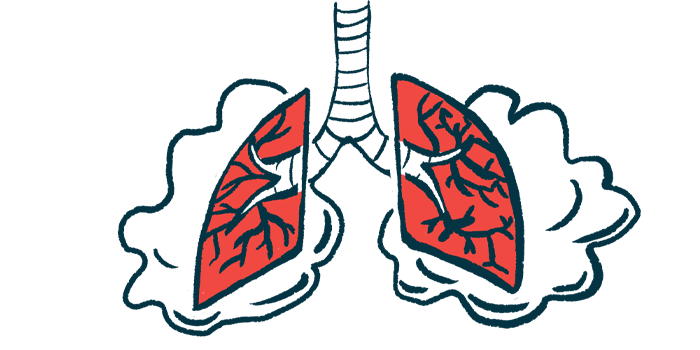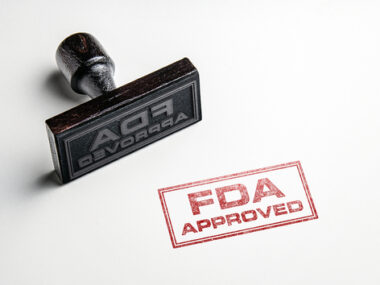SVS treatment improves breathing over 2 years in severe emphysema
Better lung function seen with use of Spiration Valve System, per trial data
Written by |

Long-term treatment with Olympus’ Spiration Valve System (SVS) safely led to sustained improvements in lung function — and in life quality — among people with severe emphysema, a form of chronic obstructive pulmonary disease (COPD).
That’s according to two-year follow-up data from the EMPROVE trial, which had tested the approved treatment with an eye toward any potential adverse effects due to its use.
These findings point “to the significant and positive long-term impact SVS treatment can have on the day-to-day functions of emphysema patients,” John de Csepel, MD, chief medical officer at Olympus, said in a company press release.
“Meaningful improvement in breathing can mean fuller lives for patients for activities as simple as the ability to go on daily walks or enjoying time with grandchildren,” deCsepel added.
The long-term data were detailed in a study, “Sustained Clinical Benefits of Spiration Valve System in Severe Emphysema Patients: 24-Month Follow-Up of EMPROVE,” published in the journal Annals of the American Thoracic Society.
SVS found to improve life quality in severe emphysema patients
Emphysema is a progressive form of COPD characterized by damage to the small air sacs, or alveoli, of the lungs. Such damage reduces the lungs’ elasticity and causes chronic shortness of breath, or dyspnea.
As a result, patients’ ability to perform physical tasks and their quality of life typically are impaired.
The Spiration Valve System, known as SVS for short, was approved in the U.S. in late 2018 as a minimally invasive treatment to improve breathing and quality of life in people with severe emphysema.
It is a small, umbrella-shaped device that works by rerouting air circulating inside the airways into healthier parts of the lungs. In so doing, it diverts air away from damaged regions that risk becoming overinflated due to the stiffening of damaged lung tissue.
The SVS is placed in damaged lung areas using a bronchoscope — a small, flexible tube that is inserted into the patient’s throat — in a procedure that is considered minimally invasive.
Its regulatory approval was based on positive data from the EMPROVE trial (NCT01812447), which enrolled 172 people, ages 40 and older, with severe emphysema and severe dyspnea. The trial was conducted at sites across the U.S. and Canada.
Participants were randomly assigned to receive the SVS device — 113 patients — or standard medical management alone, as part of a control group. A total of 59 patients served as controls.
SVS-treated patients showed significant and sustained improvements in lung function after six and 12 months relative to controls. Lung function was assessed with a validated measure called the mean forced expiratory volume in 1 second, or FEV1.
The SVS group also showed significantly greater reductions in lung overinflation and dyspnea, as well as life quality improvements, as compared with those on standard management.
The benefits [of SVS] compared to the control group at 24 months are long lasting, statistically significant and clinically meaningful. … SVS treatment offers an important opportunity to improve a patient’s lung function and quality of life.
Still, this approach may be associated with potential adverse events, which may include COPD exacerbations, or periods of sudden symptom worsening, and pneumothorax, or a collapsed lung due to air leaking into the space between the lung and chest wall.
To that end, researchers tracked patients over a 24-month period.
The newly published follow-up data showed that the SVS group continued to show significantly greater FEV1 improvements compared with the control group after two years.
Significant dyspnea reductions with SVS also were sustained with longer follow-up, as were significant improvements in several health-related quality of life measures, including the St. George’s Respiratory Questionnaire and the COPD Assessment Test.
Importantly, the rate of adverse events was similar between the SVS and control groups. Acute COPD exacerbations occurred in 13.7% of SVS-treated patients versus 15.6% of those in the control group. One patient in the SVS group and none in the control group developed a pneumothorax.
These results highlight that “SVS treatment resulted in statistically significant and clinically meaningful durable improvements in lung function, respiratory symptoms, and [qualify of life], as well as a statistically significant reduction in dyspnea, for at least 24 months, while maintaining an acceptable safety profile,” the researchers wrote.
Gerard Criner, MD, the director of Temple University’s Temple Lung Center and lead investigator of the trial, said that “the results from the EMPROVE trial demonstrate the positive impact the Spiration Valve can have on emphysema patients.”
“The benefits compared to the control group at 24 months are long lasting, statistically significant and clinically meaningful,” and the “SVS treatment offers an important opportunity to improve a patient’s lung function and quality of life,” Criner added.






